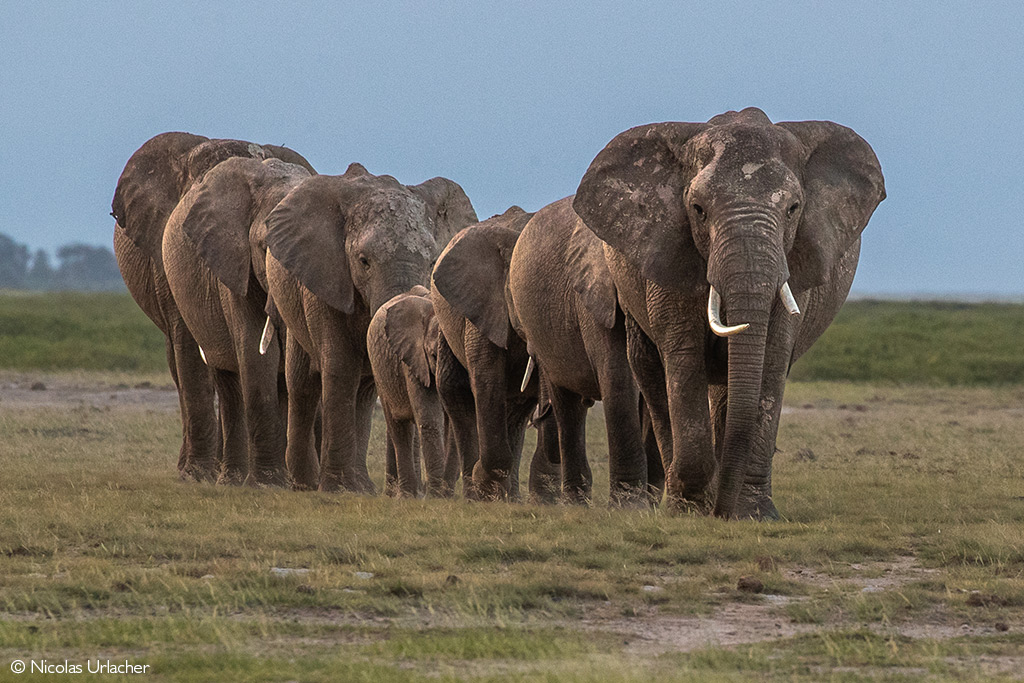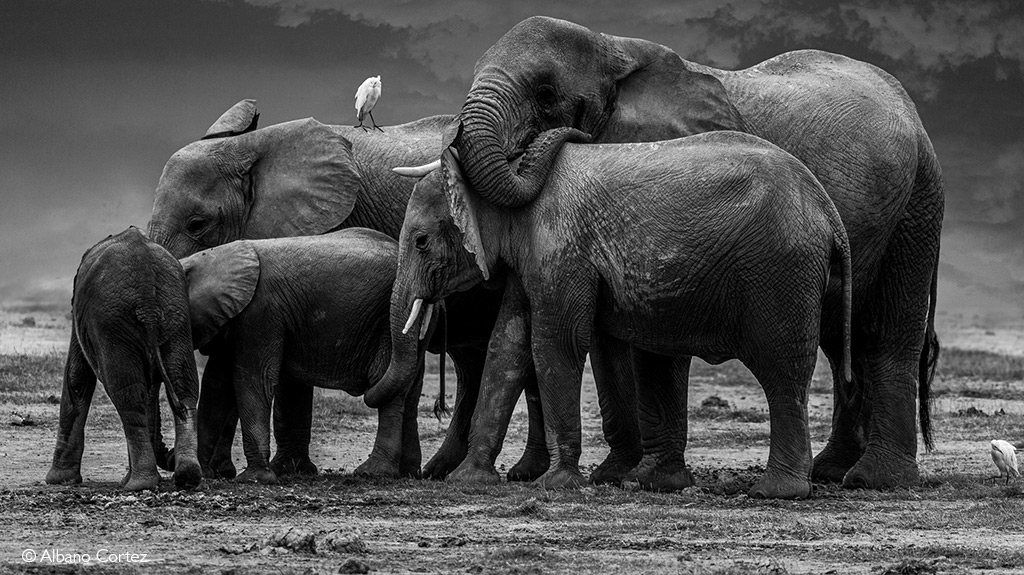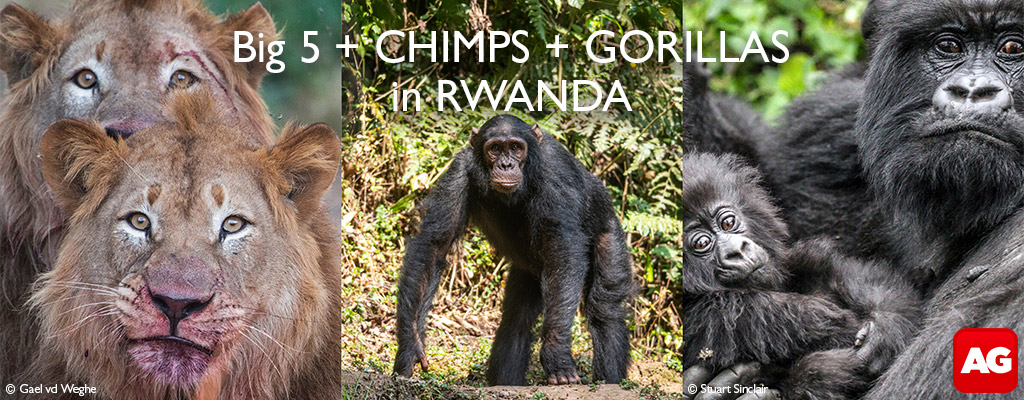
How do you call an elephant? By its name. This might appear to be the start of a bad joke, but the fact that elephants might have individual names for each other is a first in the animal kingdom. Do elephant rumblings contain names? New research has shown that it is possible that elephants have individual names, and they get one another’s attention by using these names.
Elephant name-calling
The nearest similar behaviour in animals has been observed in dolphins mimicking the particular calls of an individual whose attention they want to attract. Dolphins have their own unique set of squeaks and whistles, which self-identifies them to the group, but what is different about Bottlenose dolphins (Tursiops truncatus) is that when a dolphin wants to communicate with another dolphin, it mimics or copies that individual’s unique call signature.
Despite this being a fairly unique behaviour amongst wild animals, it is still cognitively simple to communicate to an individual by imitating that individual’s signature call. One step further is what humans do – attaching a non-mimicking, essentially arbitrary vocal label (aka “name”) to an individual. (My name, “Christy”, does not reference the sounds I make). This type of vocal recognition requires a new level of cognitive processing to connect a general sound “label” to one individual. It requires verbal learning (as individuals are not born knowing the names of their peers), memory, and assigning a symbolic meaning to individuals.

How to communicate with an elephant
A recent study (which is yet to be reviewed) included some intriguing experiments to find out more about how elephants communicate with each other.
Firstly, we know that elephants are great communicators – they can mimic sounds and have a wide variety of low-frequency rumblings. Many travellers will have experienced these rumblings while on an African safari. For example, they have a “Contact Rumble” when the caller is far away, is visually separated from the herd, and wants to get in touch again. They also have a “Greeting Rumble”, for when they haven’t seen each other for ages and they meet up again.

Researchers for this study, published on bioRxiv, recorded and analysed the calls and rumblings of elephant groups from the greater Samburu ecosystem in northern Kenya and the Amboseli National Park in southern Kenya. They observed the elephants’ interactions, noting calls and when a response was initiated by a call (through vocalising or approaching a caller). They then analysed the calls to see if vocal labels were uniquely associated with an individual and if different callers used the same vocal label (name) when addressing that individual.
 Want to plan your African safari to spot elephants in the bushveld? We have ready-made safaris to choose from, or start planning a unique safari made just for you.
Want to plan your African safari to spot elephants in the bushveld? We have ready-made safaris to choose from, or start planning a unique safari made just for you.
The results showed receivers of calls could be correctly identified from the call structure of other elephants and that there was a commonly used acoustic signal – like a label or name – in the calls to that individual. There were, however, varying sounds and rumblings in these calls, suggesting multiple messages encoded in these rumblings. The scientists suggest that results may be blurred by the fact that rumblings are not as simple as, “Hey you, Ellie, get over here!” but probably contain more information, such as in, “Hey Ellie, you want to join us? We’re thirsty, and we’re off to the waterhole while Mom isn’t looking.”
The fascinating result, however, occurred when the researchers played back recorded calls of specific herds back to these same herds in the field. They tested these vocal labels (names) in the field and compared the reactions of 17 wild elephants to the playback of calls. When the elephant heard its name in a call, it approached the recorder more quickly and vocalised more quickly than to calls without its name.

Final thoughts
So, it’s not quite a cut-and-dried case of elephants definitively having names, but there is some evidence to support the vocal identification of individuals. Why would elephants want to call each other? Elephants are social creatures, and their groups tend to split and re-connect frequently. As humans tend to respond positively when their name is used in an instruction, so too might elephants.
Reference
Pardo, M. et al. (2023). African elephants address one another with individually specific calls. doi: https://doi.org/10.1101/2023.08.25.554872 or https://www.biorxiv.org/content/10.1101/2023.08.25.554872v1
Resources
The hybrid elephants of Kibale: Read about a study from Kibale that has laid the groundwork to distinguish between forest/savannah elephant hybrids and different elephant species.
Putting elephants on the map – exploring connectivity in southern Africa: Read about how elephants move across southern Africa through protected areas and beyond
To comment on this story: Login (or sign up) to our app here - it's a troll-free safe place 🙂.![]()








